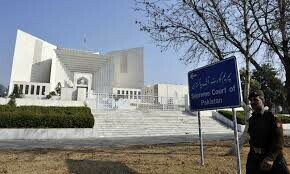KARACHI: The Constitution (Seventeenth Amendment) Bill, tabled in the National Assembly on Friday, retains the Legal Framework Order, which was promulgated on Aug 21, 2002, as part of the basic law, presumably as its sixteenth amendment. Several LFO provisions neither expressly amended nor omitted by the bill are evidently intended to remain in force.
Among such provisions is an insertion in Article 270B that afforded constitutional protection to the October 2002 general election and the assemblies sired by it. Another provision featuring in the LFO but not in the amendment bill is Article 270C, which declared that the superior court judges who took oath under the order of 2000 or lost their office on failure to take a new oath shall be deemed to have been appointed or retired under the Constitution.
The three-year extension, given to judges by amending the LFO on Oct 10, 2002, has been withdrawn. The bill, however, contains no provision to validate the decisions rendered by them after their attaining the original age of superannuation. Incidentally, the three members of the Supreme Court bench that dismissed a direct petition against the LFO on Oct 7, 2002, would lose their robes under the new amendment. They are: Chief Justice Shaikh Riaz Ahmad, Justice Munir A. Shaikh and Justice Qazi Mohammad Farooq. Justices Nazim Husain Siddiqui and Iftikhar Mohammad Chauhdry were the remaining two members.
The elaborate Article 152A, incorporated in the Constitution by the LFO to establish the National Security Council, has been reduced to one paragraph saying that “the National Security Council to serve as a forum for consultation on matters pertaining to sovereignty, integrity, defence and security of the State be constituted under an Act of Parliament”. The NSC would thus function under a sub-constitutional legislation but the enactment would stand on a constitutional footing.
Article 270AA had been re-enacted verbatim for providing affirmation and continuation of all laws made and action taken between Oct 12, 1999, and the date of adoption of the amendment bill.
Article 41 has been amended to provide for a vote of confidence in the president by his electoral college. The amendment is without prejudice to the LFO provision in the same article affirming the assumption of office by President Pervez Musharraf for five years. The resolution, to be passed by a simple majority of MPs and MPAs present and voting within 30 days of the bill becoming an Act of Parliament, is aimed at “further affirmation of the president in office” and “without prejudice” to the declaration made by the LFO. It is not clear whether the five- year-long presidential term would begin under the LFO provision or on the commencing day of the amendment Act.
The Supreme Court has been given a final say in the matter of dissolution of assemblies and dismissal of governments. The matter shall be referred to the court within 15 days and the reference shall be decided within 30 days. The SC verdict will be final. Article 48(5) that authorizes the president to appoint a caretaker cabinet after dissolution of the National Assembly remains intact.
The protection given to the four provincial local government ordinances and the (federal) Police Order of 2000 has been curtailed to six years. For six years, the order and ordinances would not be altered, repealed or amended without the previous sanction of the president. The State Bank Act, the National Accountability Bureau Ordinance and the Political Parties Order, which banished individuals disqualified under Article 63 of the Constitution from politics, would, however, continue to enjoy the immunity indefinitely.
The bill has been introduced under Article 239 of the Constitution and has to be passed by not less than two-thirds of the total membership of each house. It will be presented to the president for assent after being so passed. The provision prescribes no limit for presidential assent, implying that constitutional amendments are not amenable to veto or reconsideration once adopted by Parliament. The amendment procedure has remained unchanged.















































Dear visitor, the comments section is undergoing an overhaul and will return soon.